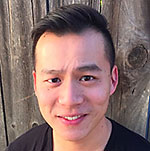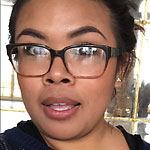
I had a story in mind, about the time I was in a cast for six weeks. A moment of cockiness, compounded by wet grass from the morning dew, led to a full arm plaster cast for four weeks and a fiberglass cast for another two.
The story was going to show how I could relate to people with disabilities. That I understood what it meant to live a life with limitations and have to constantly adapt. That I knew what it was like to feel reliant on others to care for my basic needs.
But the more I heard from people living with disabilities, impairments, and handicaps, the more I realized that six weeks of living with a dislocated wrist is nothing in comparison to their experiences. Unfortunately, I will never understand what life is like with a disability.
As an able-bodied person, there are many things I don't think about or give space to when it comes to interacting with people with disabilities. It doesn't help that our systems and structures continue to enforce the idea that it's OK to exclude "others".
Take prayer life in the evangelical church, which suggests the closing of eyes to avoid distractions. It's a practice that can be powerful for people who can hear and take auditory cues, but is exclusionary to those who rely on their sight to communicate. How can we cultivate environments that are inclusive of all types of communication styles?
It's wonderful to show our love for God through acts of physical service like missions trips, lifting boxes, and stacking chairs — but we may be leaving out those who suffer from physical pain. How do we offer alternatives in how they can serve the rest of the church without shaming or embarrassing them?
It's wonderful that we celebrate motherhood. But when we overemphasize motherhood as a woman's key contribution to her husband and the church, we neglect those who are infertile or have difficulty getting pregnant. How do we celebrate all women instead of just their role as mothers?
I pray for a Church that not only celebrates those who have disabilities, but also values how we can learn from a life with disabilities.
When we don't pay attention to these people in our community, we are missing out on all that they have to offer to the rest of us able-bodied people. What these lessons are, I don't know — I imagine that we can learn wonderful things about mutuality, leaning on one another for support, and resilience despite tough circumstances.
But the best thing we can do for now is to begin with some stories for us to consider how people with disabilities — from birth or impaired later in life — manifest the image of God just as much as, if not more than, able-bodied people.

Daniel Chou (he) serves as the editor-in-chief of Inheritance and is also one of the magazine’s founders. He holds a Master of Divinity from Fuller Theological Seminary. Outside of Inheritance, he is co-founder of Winnow+Glean and enjoys roasting coffee. He posts sporadically on Instagram @dchou and even more sporadically on Twitter @danielchou.
